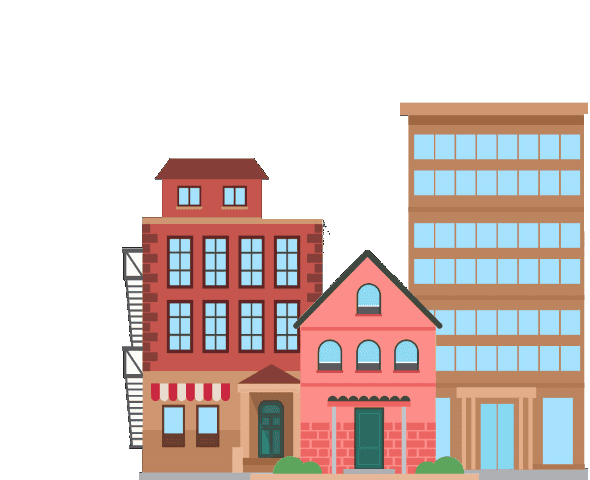Buying your first home is a major milestone, but it can also be financially overwhelming. The good news? Canada offers several tax credits and incentives to help first-time buyers offset some of the costs and make homeownership more affordable.
Understanding and taking advantage of these tax credits can lead to thousands of dollars in savings—but many first-time buyers either aren’t aware of them or don’t fully utilize their benefits. At Homewise, we’re here to guide you through the process, ensuring you get every dollar you’re entitled to.
1. What Are First-Time Homebuyer Tax Credits?
First-time homebuyer tax credits are government programs designed to:
- Reduce upfront costs associated with buying a home.
- Encourage homeownership by making it more accessible.
- Offset expenses like legal fees, land transfer taxes, and closing costs.
These incentives are available at both the federal and provincial levels, and many can be stacked for even greater savings.
💡 Thinking of buying your first home? Start by applying for a mortgage pre-approval with Homewise to know what you can afford.
2. Key First-Time Homebuyer Tax Credits in Canada
Let’s break down the most valuable tax credits and incentives available to first-time homebuyers.
a) First-Time Home Buyers' Tax Credit (HBTC)
The First-Time Home Buyers’ Tax Credit (HBTC) is a federal program that allows you to claim a $10,000 tax credit for the purchase of your first home.
How it works:
- You receive a non-refundable tax credit of $1,500 based on the $10,000 claim.
- Available for qualifying homes purchased by first-time buyers.
Eligibility:
- You (or your partner) must not have owned a home in the past four years.
- The home must be your principal residence.
Pro Tip: Don’t forget to claim the HBTC when filing your taxes the year after your home purchase.
b) Home Buyers' Plan (HBP)
The Home Buyers’ Plan (HBP) allows first-time buyers to withdraw up to $60,000 from their RRSPs to use toward a down payment—tax-free.
How it works:
- You can withdraw up to $60,000 (an increase from the previous $35,000 limit in 2024).
- You have 15 years to repay the amount to your RRSP.
- No taxes are applied to the withdrawal, provided you meet the repayment schedule.
Eligibility:
- The home must be your primary residence.
- You must not have used the HBP in the past four years.
💡 Tip: If both you and your partner are eligible, you can withdraw up to $120,000 combined from your RRSPs!
c) GST/HST New Housing Rebate
If you’re buying a newly built home or substantially renovating an existing one, you may qualify for a rebate on the GST or HST you paid.
How it works:
- You can receive up to 36% of the GST paid on a new home.
- Available for homes with a fair market value of $450,000 or less.
- For homes priced over $350,000, the rebate decreases gradually.
Eligibility:
- Applies to new builds, pre-construction purchases, and major renovations.
d) Land Transfer Tax Rebates
Land transfer taxes (LTT) can add thousands to your closing costs, but first-time buyers can receive rebates in several provinces.
Ontario:
- Rebate of up to $4,000.
- Applies to homes priced up to $368,000 (full rebate).
British Columbia:
- Full exemption for homes under $500,000.
- Partial rebate for homes priced between $500,000 and $525,000.
Toronto (Municipal Rebate):
- Additional rebate of up to $4,475 for first-time buyers purchasing in Toronto.
💡 Tip: Check with your province or municipality for land transfer tax rebates specific to your area.
3. How to Maximize Savings as a First-Time Buyer
Now that you know the available tax credits, here’s how to maximize your savings:
a) Stack Multiple Programs
You can combine the HBTC, HBP, GST/HST rebates, and land transfer tax rebates for maximum savings. For example:
- Use the Home Buyers’ Plan (HBP) for your down payment.
- Claim the First-Time Home Buyers’ Tax Credit (HBTC) during tax season.
- Apply for land transfer tax rebates at closing.
b) Save with Energy Efficiency Grants
In addition to first-time buyer incentives, the Canada Greener Homes Grant offers rebates for energy-efficient upgrades. If you plan to renovate, these rebates can reduce long-term costs and increase the value of your home.
c) Work with a Real Estate Professional
A real estate agent experienced in working with first-time buyers can guide you to properties that qualify for tax credits and rebates. At Homewise Real Estate, our team can help you navigate these opportunities.
4. Avoid Common Mistakes
While tax credits can save you thousands, many buyers miss out due to small errors. Here’s what to avoid:
- Missing tax deadlines – Ensure you claim credits during the appropriate tax year.
- Failing to repay HBP withdrawals – Missing payments can lead to tax penalties.
- Assuming all properties qualify – Not all homes are eligible for every rebate, so double-check requirements.
5. Planning for Your First Home Purchase
- Get Pre-Approved – Knowing your budget is key. Apply for a mortgage pre-approval to understand what you can afford.
- Research Properties – Look for homes that meet rebate eligibility requirements.
- Budget for Closing Costs – Factor in land transfer taxes and legal fees, even with rebates in mind.
Conclusion
First-time homebuyer tax credits are powerful tools that can significantly reduce the cost of homeownership in Canada. By understanding these incentives and planning ahead, you can save thousands and make the homebuying process smoother and more affordable.
Ready to take the next step? Let Homewise guide you through the mortgage process and help you maximize every available credit and rebate. Apply today and start your journey toward homeownership with confidence.







